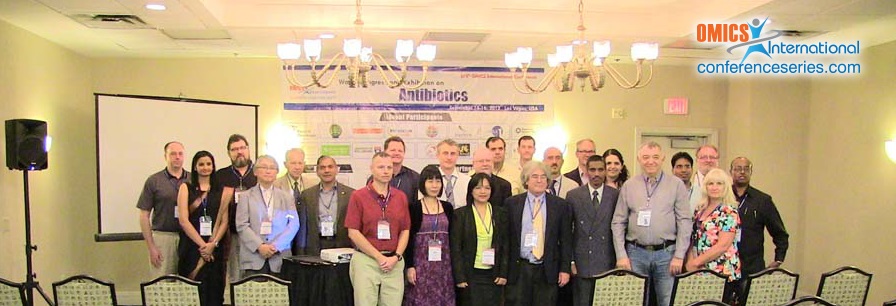
Khine SweSwe- Han
University of KwaZulu-Natal, National Health Laboratory service ( NHLS) , IALCH Academic complex , South Africa
Title: The prevalence of Carbapenem Resistant Gram Negative Bacteria (CRGNB) and Methicillin Resistant Staphylococcus aureus (MRSA) in a central referral hospital, Durban, South Africa between 2010-2014
Biography
Biography: Khine SweSwe- Han
Abstract
Introduction: Antibiotic resistance poses a serious challenge to public health worldwide, including South Africa. This problem has been exacerbated by the emergence of carbapenem resistant Gram-negative bacteria belonging to the Enterobacteriaceae, Acinetobacter and Pseudomonas aeruginosa (CRE/CRNE), as well as the presence of methicillin resistant Staphylococcus aureus (MRSA). This study was conducted to determine the prevalence of CRE/CRNE and MRSA at a central referral hospital within a 5 year period. Methods: The laboratory data and hospital admission data were reviewed between 2010 and 2014. The identification and drug susceptibility test results were interpreted by using the automatic system (Vitek 2) and the clinical laboratory standards institute (CLSI) guidelines. The prevalence of the patients infected with MRSA/CRE/CRNE was determined. Results: The prevalence of the patients with MRSA decreased from 47% (421/889) to 22% (172/770) from 2010 to 2014. This was probably due to the implementation of strict infection control measures. CRNE was fluctulated between 39% (368/941) to 48% (331/689) during the same period, with A. baumannii being the predominant organism among the CRNE. However, the prevalence of the CRE (K. pneumoniae and E. coli) increased from 0% (0/1110) to 2% (20/1265) during the study period. Conclusion: Although the prevalence of MRSA was significantly reduced, the challenge remains for the total elimination of these resistant pathogens, as well as the highly prevalent CRNE and the newly emerging CRE before this spirals out of control. Additional resources, antibiotic stewardship and aggressive infection control programs are urgently needed to prevent and control the spread of these resistant organisms in the hospital setting.


